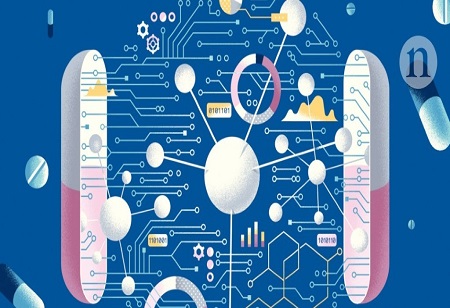Richa Singh | Sunday, 13 August 2023

Ground-breaking discoveries in the field of modern medicine frequently result from creative strategies for medication development and research. Monoclonal antibodies (mAbs) have developed into a potent and adaptable class of therapeutic agents, providing game-changing remedies to a wide range of medical problems. These amazing compounds are reshaping the field of drug development and healthcare, demonstrating their enormous potential to transform the way we treat illnesses. Monoclonal antibodies can be used to target and bind to certain substances in the body, such as proteins or toxins because they are very selective. Because they may be used to identify and target specific molecules implicated in disease processes, they are perfect for drug discovery and development. Furthermore, compared to conventional medication molecules, monoclonal antibodies have been reported to have fewer negative effects. For instance, research is being done to create monoclonal antibody medications to treat COVID-19, and a monoclonal antibody treatment has been produced to treat severe allergic reactions to peanuts. Drugs containing monoclonal antibodies do have certain downsides, though. They can be highly expensive to make, which is one of their biggest drawbacks. Monoclonal antibody medications are also frequently complicated compounds that can be challenging to manufacture in big quantities. Finally, some individuals may find it challenging to employ monoclonal antibody medications since they can provoke immunological reactions in patients. Let us see how drug discovery and development are being revolutionized by monoclonal antibodies.
Precision Targeting and Therapeutic Efficacy The remarkable specificity with which monoclonal antibodies target antigens or proteins is one of their distinguishing characteristics. mAbs are designed to specifically bind to a particular molecular target, frequently a cell surface receptor or a signaling molecule, in contrast to conventional small molecule medications. Through molecular-level intervention made possible by this precise targeting, researchers and physicians may pinpoint the underlying causes of diseases with unmatched accuracy. The use of monoclonal antibodies in the treatment of cancer is a prime example of their exceptional therapeutic efficacy. Therapeutic mAbs that specifically target cancer cells while sparing healthy cells, such as trastuzumab (Herceptin) and rituximab (Rituxan), have changed the way oncology is practiced. These antibodies can deliver cytotoxic payloads, efficiently disrupt abnormal signaling pathways, and encourage immune-mediated death of cancer cells. Beyond oncology, mAbs have demonstrated remarkable success in treating autoimmune disorders. In conditions like rheumatoid arthritis and inflammatory bowel disease, monoclonal antibodies can neutralize key inflammatory mediators, alleviating symptoms, and halting disease progression. Their ability to selectively modulate immune responses offers a potent alternative to broad impressiveness agents, presenting a safer and more effective therapeutic option.
Diverse Modalities and Innovative Engineering The versatility of monoclonal antibodies extends beyond their targeting capabilities. Recent advancements in antibody engineering have ushered in a new era of therapeutic modalities, expanding their potential applications across a wide spectrum of diseases. Bi-specific antibodies, for instance, are designed to bind two different targets at the same time. The ramifications of this novel strategy for cancer immunotherapy are enormous. Bispecific antibodies can improve immune identification and facilitate the eradication of cancer cells by bridging tumor cells and immune cells. They have the potential to use the immune system's capabilities in previously unheard-of ways, improving the chances of complete and long-lasting remissions in previously resistant cancers. In addition, antibody-drug conjugates (ADCs) are yet another ground-breaking use of mAbs. ADCs allow for the targeted medication delivery of cytotoxic agents to cancer cells. With this approach, off-target effects are reduced and the therapeutic index of powerful cytotoxic drugs is increased. ADCs have proven to be remarkably effective in treating solid tumors and hematological malignancies, demonstrating their potential to completely alter the medical industry.
Accelerated Drug Development and Personalized Medicine Not only have monoclonal antibodies changed therapy paradigms, but they have also sped up the advancement of drug development techniques. Their strong specificity and well-understood modes of action hasten preclinical and clinical evaluation, allowing for a quicker transition from lab to bedside. Additionally, the development of monoclonal antibodies has made it possible to practice personalized therapy. Clinicians can adapt treatment plans to specific patients based on their molecular profiles by utilizing the specificity of mAbs. This individualized method improves treatment results while lowering the possibility of side effects, ushering in a new era of patient-centered care. A further instance of the role that monoclonal antibodies play in personalized medicine is their usage as diagnostic tools. The accurate and early identification of disorders like infectious diseases and cancer is made possible by the development of antibodies that can recognize disease-specific biomarkers. This diagnostic utility supports community health management and disease surveillance in addition to helping with timely action. In the area of drug research and discovery, monoclonal antibodies have become a major force. Our methods for managing and treating disease have been completely transformed by their precise targeting, variety of delivery systems, and promise for individualized medicine. The untapped potential of monoclonal antibodies promises to open up new therapeutic paths and redraw the lines of what constitutes cutting-edge medical innovation as our understanding of immunology and molecular biology continues to expand. These extraordinary molecules are positioned to influence the future of healthcare, providing hope and healing to countless individuals around the world with conditions ranging from oncology to autoimmune illnesses, infectious diseases to rare genetic abnormalities.